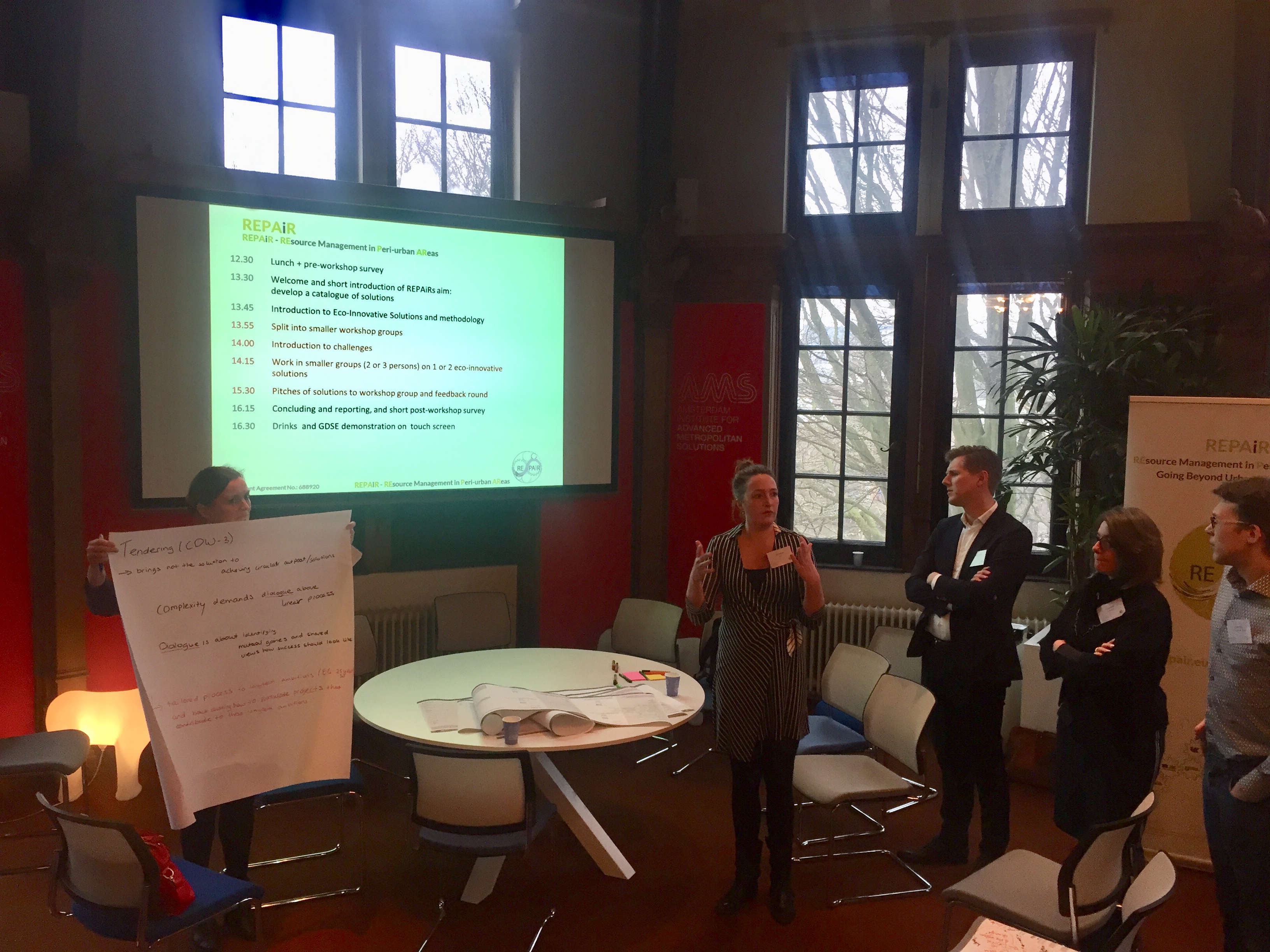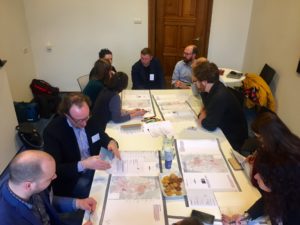The second Amsterdam Peri-Urban Living Lab (PULL) workshop was organised on February 19, 2018. Working with predefined challenges for the circular economy in the Amsterdam Metropolitan Area (AMA), the aim of the workshop was to jointly develop a set of first initial eco-innovative solutions. The workshop attracted a large, broad group of participants, including representatives from all REPAiR case study areas and local stakeholders and experts on food waste, construction and demolition waste, and wastescapes. The workshop was arranged as three separate workshops, each focusing on one waste flow. The initial solutions showed a wide scope. Proposed solutions for food waste were 1) alternatives to oversized super market portions, 2) smart bio refineries, 3) separation of plant based waste from animal based waste, 4) a broader rethinking of the whole food chain based on demand and supply matching. The solutions proposed for construction and demolition waste were holistic, developing a systemic view of the construction process, where the main aim is to adapt the cooperation between different parties, and to develop circular, financially feasible business plans. The wastescapes workshop developed firstly a better understanding of the different unused, underused and contaminated space typologies. Accordingly, the workshop several systemic solutions, focusing mostly on new land use alternatives and community engagement.
The results from this second workshop will be used as input for the next part of the PULL Amsterdam, in which the solutions will be fed into the REPAiR’s Geodesign Decision Support Environment (GDSE). The GDSE will in turn provide quantitative assessments of each solution. In the following months, the TU Delft team will work together with the Dutch partners, stakeholders and TU Delft students to develop the preliminary solutions that were developed in the workshop towards implementable GDSE-ready eco-innovative solutions.



